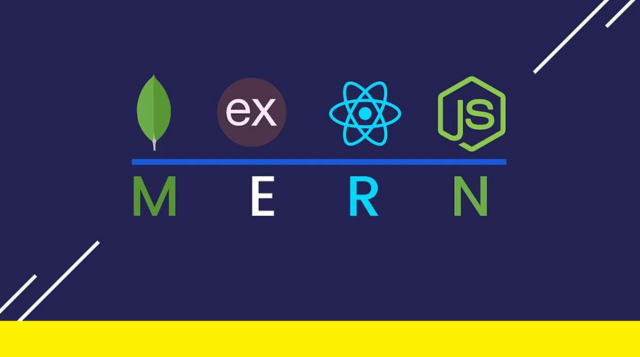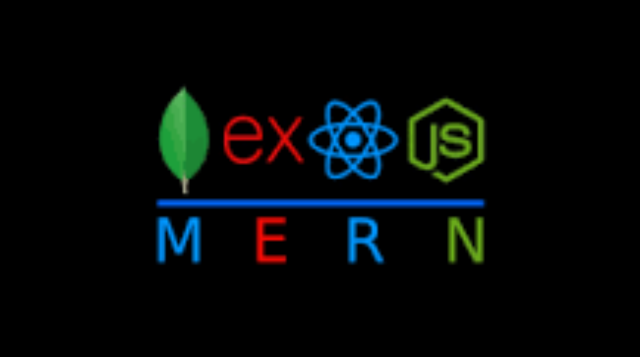What Is The MERN stack?
The MERN stack is a popular software development stack used for building web applications. MERN is an acronym that stands for.
A NoSQL database that is used to store and manage data. MongoDB is a document-oriented database, which means it stores data in JSON-like documents, making it flexible and scalable. It is particularly well-suited for applications with rapidly changing data or complex data structures.
The MERN stack-A back-end web application framework for Node.js. Express.js simplifies the process of building robust and scalable server-side applications. It provides a set of features and tools for routing, handling HTTP requests, and interacting with databases, making it easier to create RESTful APIs and server-side logic.
The MERN stack- A JavaScript library for building user interfaces. React is often used for creating the front-end of web applications. It allows developers to build interactive and dynamic user interfaces by creating reusable components. React is maintained by Facebook and is known for its component-based architecture.
The MERN stack- A runtime environment that allows JavaScript to be executed on the server-side. Node.js is used with Express.js to build the server-side components of MERN applications. It is known for its event-driven, non-blocking I/O model, which makes it well-suited for building highly scalable and real-time web applications.
The MERN stack is popular among developers because it offers a full-stack solution for building web applications entirely in JavaScript. This means that developers can use the same language (JavaScript) for both the front-end and back-end, which can streamline development and make it easier for developers to work on different parts of the application.
MERN is often used to build single-page applications (SPAs) and progressive web apps (PWAs) due to its ability to create responsive and dynamic user interfaces. It’s a versatile and powerful stack for building a wide range of web applications, from simple websites to complex, data-intensive applications.
What Is Digital Literacy? competences, History, Benefits
Gaining Technical Skill:-
The MERN stack- Acquiring technical skills refers to the process of acquiring and developing expertise in a specific area of technology, such as programming, hardware maintenance, data analysis, or any other technical area. Technical skills are generally practical abilities and knowledge that allow individuals to perform specific tasks or solve problems related to technology and its applications.
The MERN stack- This may include formal education in the form of degrees or certificates from universities, colleges, or technical schools. It may also include self-study through online courses, textbooks, or other learning resources.
Acquiring technical skills requires practical experience. This may include working on real-world projects, participating in coding exercises, or using tools and software related to the field.
The MERN stack- Technical skills often involve the ability to solve complex problems. As you gain experience, you will become more skilled at troubleshooting problems and finding solutions.
Technology is constantly evolving, so it is important to stay updated on the latest trends and advancements in your chosen field. Continuous learning is important to maintain and expand your technical skills.
Building a network of peers and mentors in your field can provide valuable insight, support, and opportunities for collaboration and learning.
The MERN stack-Examples of technical skills include programming in languages such as Python or Java, configuring and managing computer networks, designing websites, performing data analysis using software such as Excel or Python libraries, and more. The specific technical skills you need will depend on your career goals and the industry in which you work.
Overall, acquiring technical skills is a dynamic and continuous process that involves both education and practical experience. It is essential for individuals in the technical profession to keep pace with changing technologies and remain relevant in their field.

The MERN stack has several specialties and advantages:-
Full-Stack Development in JavaScript:
MERN allows developers to use JavaScript for both the front-end and back-end development. This uniformity in the programming language streamlines the development process and allows for better code reuse and a more consistent development environment.
React for Dynamic User Interfaces:
React is known for its ability to create highly interactive and dynamic user interfaces. It uses a component-based architecture, which promotes code modularity and reusability, making it easier to maintain and scale web applications.
NoSQL Database (MongoDB):
MongoDB, as a NoSQL database, provides flexibility in data storage. It’s particularly well-suited for applications with evolving data structures or unstructured data. This flexibility can be an advantage when working on projects that don’t fit neatly into a traditional relational database model.
Express.js for Building APIs:
Express.js is a lightweight and efficient web application framework for Node.js. It simplifies the creation of RESTful APIs and server-side logic. It is designed to handle HTTP requests and responses, making it a solid choice for building the back-end of MERN applications.
Node.js for Scalable Server-Side Logic:
Node.js is known for its event-driven and non-blocking I/O model, which allows for high concurrency and scalability. This makes it suitable for building real-time and data-intensive applications. Node.js is also known for its extensive ecosystem of libraries and packages available through npm (Node Package Manager).
Single-Page Applications (SPAs):
MERN is often used for developing single-page applications, where the entire application runs in the browser, and only data is fetched from the server as needed. This approach can lead to a smoother and more responsive user experience.
Versatility:
The MERN stack is versatile and can be used to build a wide range of web applications, from simple websites to complex, data-driven applications, e-commerce platforms, social networks, and more.
Community and Resources:
MERN has a large and active developer community, which means there are plenty of resources, tutorials, and open-source projects available for developers. This community support can be a significant advantage when working with the stack.
Scalability:
With its use of Node.js and MongoDB, MERN is well-suited for building scalable and real-time applications. Node.js can handle a large number of concurrent connections, and MongoDB’s horizontal scalability makes it capable of handling big data and high loads.
Overall, the MERN stack’s specialties include a unified JavaScript environment, a focus on building dynamic and responsive user interfaces, and flexibility in data storage, making it a strong choice for modern web application development. However, the choice of stack should always depend on the specific requirements and constraints of a project.

